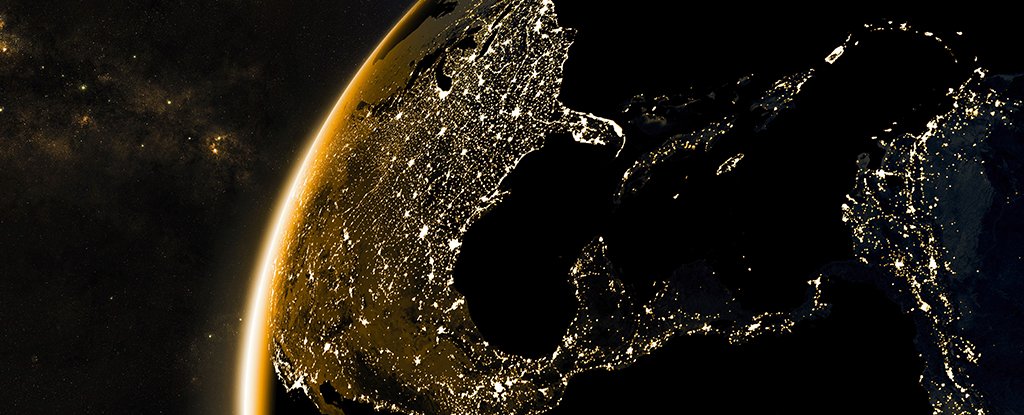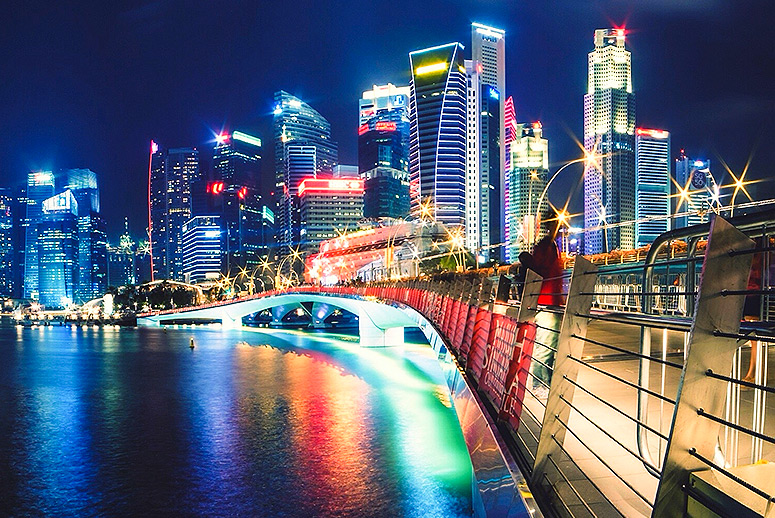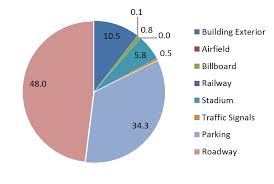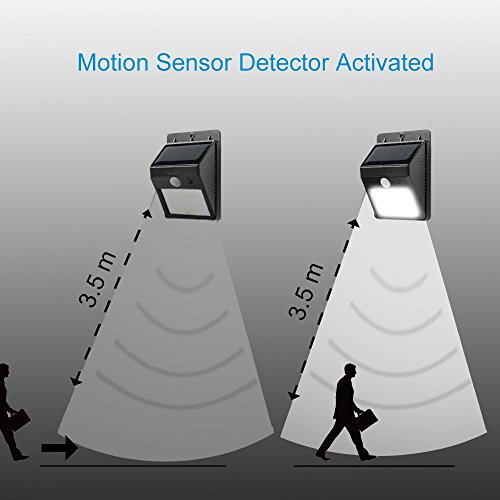Light pollution. A dramatic increase in the world.
Light pollution is the brightness or glow of light in the night sky produced by reflection and diffusion of artificial light in gases and air particles by the use of inadequate lighting and/or excess lighting.

Source
There is a growing concern with regard to light pollution. In cities, the excess of lighting in buildings and streets only reflects how inefficient we use artificial lighting and the waste in which we are immersed.
But light pollution has other negative effects on the lives of people and especially in cities. There are chemical processes where suspended particles are transformed and stop being pollutants, but for this to happen there must be some degree of darkness, which is not enough in cities in general. The contamination should go down at night, but the chemical processes do not react with the excess of light.

Source
The lights of the cities delay the processes of nocturnal cleaning of the contamination, since they can give place to more chemical products from the contamination of the following day, and even affect the levels of ozone after the dawn, the effect of the contamination Light is an additional piece in the puzzle that determines the chemistry of the Earth's atmosphere.

Source
The glow caused by artificial light that affects the gases and particles of the environment creates a strong reflection of light. This process negatively affects the flight of birds and animals or migratory insects, thus breaking natural cycles in our environments, which has more consequences than we can imagine.
Why does light pollution occur?
The main cause is the massive use of luminaires, poorly inclined projectors, luminous signs working all night with excessive intensities of light and in unnecessary spectral ranges. With this the night diminishes, the light of the stars, galaxies and other stars gradually disappears affecting the environment and artificializing the night.

Source
If the scattered light comes from luminaries with a wide emission spectrum, the effect is even worse, because the luminous radiations of those stars that have the same wavelength are no longer visible. The main cause is the use in the public electricity network of luminaries that do not have properly designed screens, which do not send their light to the ground and scatter it towards the sky above the horizon.
Some common causes are:
Indiscriminate use of balloon type luminaires, without any kind of screen.
Lack of control over decorative lighting in buildings.
Badly lit advertising.
Use of mercury vapor lamps.
.jpg)
Source
How to collaborate to avoid light pollution?
Modify the exterior lighting: install LED bulbs or low-pressure sodium bulbs. Both types of light bulbs are energy efficient because of the light they produce. Low-pressure sodium bulbs produce a warm light that does not significantly affect the atmosphere- LED lights also produce this section of the spectrum, among others, and also have the ability to dim to achieve lower brightness levels.
Direct the light where it is needed. It uses reflectors on the outside to illuminate the roads. This will prevent you from buying a full row of lights to light a path. Always opt for less bright lighting options that can be addressed as much as possible in order to avoid excessive brightness.

Source
Make your exterior lights point downwards. This helps prevent stray light from entering the atmosphere. The light reflected by the floor, even in the night, provides enough light for nocturnal activities.
Install motion detection lights. These lights only light when they feel movement in their field of vision. Also, you can place them on the paths of the garden, near the garages, around dark spaces and even in the corridors. When turned on only when needed, the lights will compensate your investment quickly.

Source
Turn off the lights you do not use. There is no need to have all the lights in the house on all the time. Turn off lights in rooms that you do not use.
Close the blinds. Will you have a very bright party? Keep the light inside and do not let the shine escape. Close the blinds and curtains and dim the lights a bit to improve the environment.
Use "warm" lights to light your house. The "cold" lights or those that are at the blue end of the spectrum are stronger and noticeable at a distance. Warmer lights, such as those that have a yellow or orange hue, are less strong and do not spread easily into the atmosphere.
Install smart lights Intelligent lighting is a good option to have a great level of control over the lights. This type of lighting can be controlled and programmed by an intelligent device, allowing you to reach a precise level of efficiency in your home.
Restricts certain activities for the morning. It is better to schedule activities that require good lightings, such as painting walls or paintings, sewing, and cleaning, when the sun becomes a good source of light.
Share your knowledge with your family and friends. Many people do not know or understand the luminous glow and the negative impacts of having too many lights on at night. Therefore, be an ambassador and explain these problems to other people. As a result, you will have more people who will act as protectors of the night sky.
Communicate with your neighbors. Remember that fighting light pollution requires a group effort. Even a few houses in a neighborhood can make a noticeable difference in the visibility of the night sky.
Write a letter to your municipal council. In it, he suggests the change of street lights for more environmentally friendly alternatives. There are a variety of new street light bulbs that have been designed to reduce light pollution, as well as to reduce costs.

Source
Join an awareness group on light pollution. Several awareness groups on light pollution have been created in recent years. These offer a way to get together with other people who have ideas similar to yours to generate a large-scale change.
Provides support for environmentally friendly buildings. It has begun to build many "green" buildings in order to get buildings more friendly to the environment. If you are going to remodel the building where you work or if you will start a new construction in your neighborhood, ask the person responsible for their plans to fight light pollution.
Nice post. Been thinking about this yesterday. I got my telescope so I need to go to the mountains to catch all the stars...